In May 2018, a new value-based reimbursement proposal, Patient-Driven Payment Model (PDPM), was introduced by CMS. CMS believes PDPM is an improvement over the RUG-IV and Resident Classification System (RCS-1) models because it better accounts for resident comorbidities and patient-specific care needs while reducing the emphasis of therapy minutes. PDPM is also designed to decrease administrative complexities (paper work!) through an overhaul of required MDS schedules.
PDPM is budget-neutral and classifies each resident into five categories (PT, OT, SLP, Non-Therapy Ancillaries, and Nursing) and provides a single payment based on the sum of these individual classifications. The new model is on track to go into effect for payments beginning October 1, 2019. For those familiar with the proposed RCS-1 model, PDPM replaces that proposal. The RCS-1 was a case-mix model that would classify residents in a Part A-covered stay into payment groups and was widely criticized by professional associations such as APTA, AOTA, and ASHA for oversimplifying the holistic needs of SNF patients.
The adoption of PDPM will have significant and lasting impacts on our SNF partners – mainly due to its emphasis on treating the needs of the whole patient instead of focusing on the volume of services the patient receives. Infinity Rehab is excited and prepared to help our SNF partners succeed within this new reimbursement environment. Our Quality and Clinical Outcomes team has worked with many of you to implement CORE evidence-based approaches to standardize care models, determine effective dosage of treatments, and deliver proven, result-driven therapy.
During the lead-up to PDPM taking effect, Infinity Rehab’s leadership will apply three distinct categories to our approach to PDPM both with our SNF partners and our clinicians: Reassurance, Strategy, and Opportunity.
Reassurance: Infinity Rehab is well-prepared for these changes based on our history of delivering evidenced-based therapy that is proven to reduce patient length of stay and achieving optimal outcomes.
Strategy: Through communication, training, and operational consultation, Infinity Rehab will prepare our SNF partners and our therapists to succeed in this new environment and to also achieve quality outcomes for the people we serve.
Opportunity: We are actively identifying additional opportunities to further meet the needs of ALL of our patients and customers during this industry change. This may include patient activity “outside of therapy” and consultation service.
We look forward to sharing more information on these rule changes and any modifications that take place between now and October 2019.
_____________________________________________________________________________________
Michelle Jabczynski, MS, CCC-SLP – Director of Compliance and Strategy
Michelle has led an extensive career in the long-term, sub-acute, adult rehab setting as a Speech Language Pathologist since she earned her Master’s from the University of Wisconsin in 2005. She joined Infinity Rehab in 2012 as an Area Rehab Director and most recently served as Home Health Director for where she achieved operational and financial excellence in both roles before becoming Infinity Rehab’s Director of Compliance and Strategy.
Michelle attests that her primary core value is curiosity. She will apply that trait wholeheartedly to the strategy component of her role as she helps Infinity Rehab tactically maneuver within the regulatory world and continue to grow the organization as a premier leader of post-acute care services.




